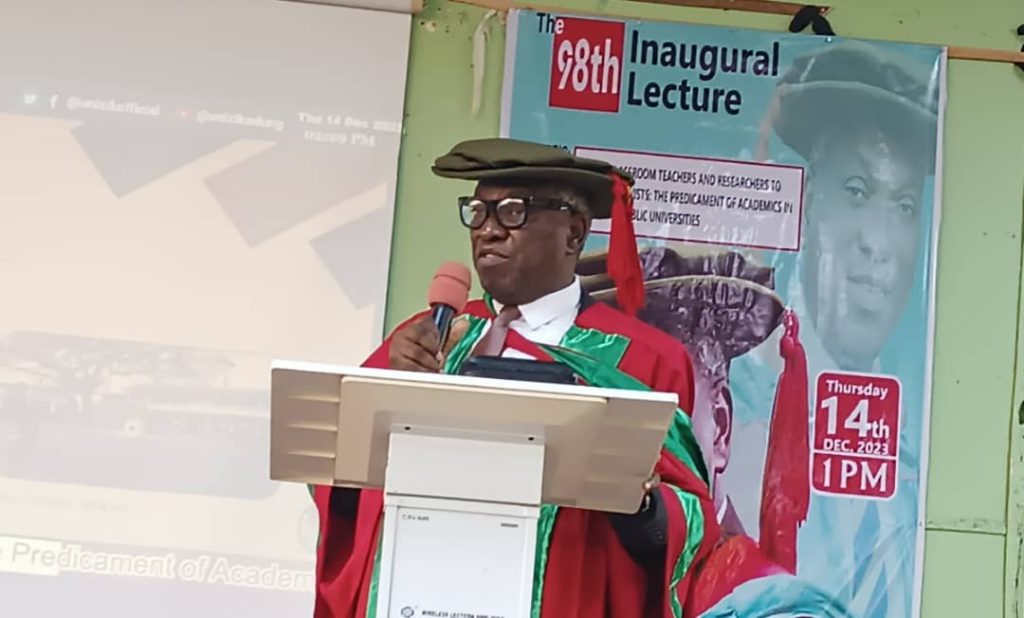Lawrence Nwimo, Awka
A Professor of Industrial Sociology and Industrial Relations, Prof Nkemdilim Nnoyelu, has lamented overbearing interference of governments and its regulatory agencies or bodies on the autonomy of public universities in the country.
Prof Nnoyelu, during the 98 inaugural lecture of Nnamdi Azikiwe University, Awka, Anambra State, identified such interference as a major factor hampering development of university education system in Nigeria.
Delivering the lecture titled: “From classroom teachers and researchers to union activists: the predicament of academics in Nigerian public Universities,” Prof. Nnonyelu described the practice of Ministries of Education and the National Universities Commission (NUC) determining curriculum benchmark as strange to global standards.
He canvassed review of NUC mandate, including allowing universities the liberty to determine their content, syllabus and curriculum without being restrained by regulation and standardisations.
He said: “Autonomy of the university is sacrosanct. The university should be insulated from government interference to enjoy academic freedom in terms of content, curriculum and syllabus.
“The university should not be under the overbearing of the Ministry of Education or any other authority. They should be allowed to develop their own programmes.
“Professors should be allowed to teach what they want to teach and not to be given benchmark, all in the name of uniformity of standard.
“Intellectuals should be allowed to flourish and blossom. It’s a major struggle. That’s why university is called “mahadum” in Igbo language.
“NUC affects this autonomy to a very large extent. The whole system should be adjusted and reviewed especially in terms of the powers the Commission wields.
“The accreditation system is a ruse. What is it doing for us? Even though they point to global standard, but we know the reality on ground.”
Prof Nnoyelu lamented the over 7 years closure of universities in the last 31 years occasioned by strike actions. He called for institutionalisation of collective bargaining and implementation of agreements with unions as panacea for reoccurring industrial disputes in the education system.

